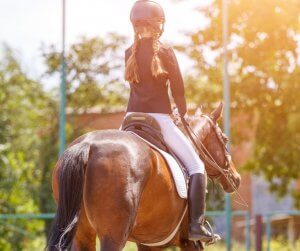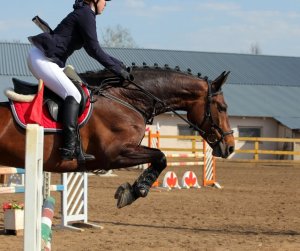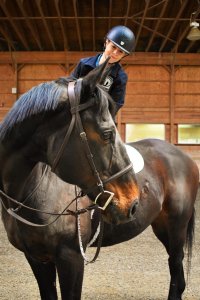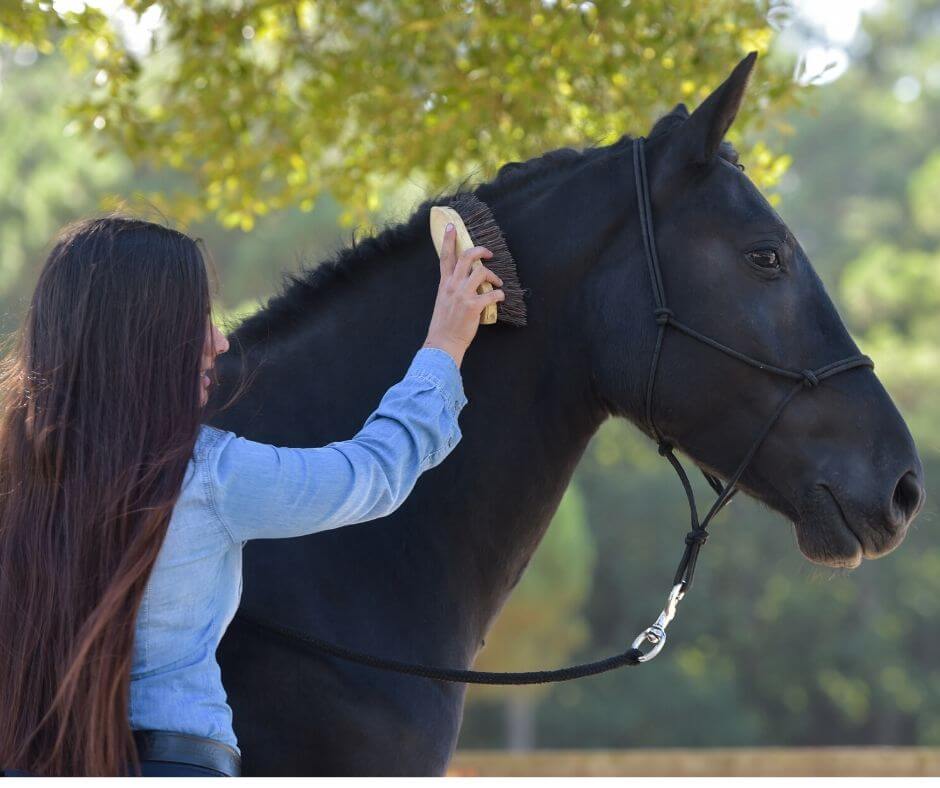Teenage girls are constantly comparing themselves to other girls. Participating in a sport where you’re judged based upon your performance and athleticism increases the awareness of appearance. All eyes are on you when you’re competing. Comments come from all directions: peers, coaches, parents, and even the lady at the tack shop. Body image in the equestrian world forms early on. Below are some comments that just a handful of young women have heard during their riding careers.
You’re too heavy to ride that horse.
I can see your back fat in those breeches.
You didn’t place well at the show because of your body type.
We don’t carry bigger sizes for your calves in English boots, maybe you should try western pleasure, so you can wear short boots.
These comments begin from a young age and can follow riders for the rest of their lives. While these comments are alarming and soul-crushing, you as the parent can play a positive role in transforming and maintaining your daughter’s positive body image in equestrian sports.
Body image is how you perceive and feel about your body. If your daughter has a healthy body image, she feels happy about the way she looks. However, 50% of teenage girls (80% if you’re talking about girls over the age of 17) have an unhealthy body image¹. This means that they do not like the way they look and they wish there was something they can do to change it. This can be harmful when they’re already in a sport that hyper-focuses on the size and shape of the rider.
So, how do you help your daughter achieve and keep a positive body image? Contrary to popular belief, you SHOULD be talking about it with your t(w)een.
Educate Her on Puberty

Avoid Negative Talk
Kids and teens hear everything. They hear you joking around with your spouse about the weight they put on over the winter. They hear you judging the women on the Bachelor. They hear you talking to your best friend about how unhappy you are in your summer clothes. These thoughts may surface naturally, but if you don’t want your daughter thinking these ways about herself, don’t say these things out loud. Better yet, work on your own mindset about the way you think about body shape. If you hear your family or friends making jokes shaming other’s bodies, check that behavior.
Be a Role Model
I’m not saying you have to get on a horse and show her how it’s done. Become a positive role model through your words and actions. Pay careful attention to how you speak about yourself. Do you degrade your own appearance? Even in passing? Talk about how you eat healthy meals and exercise for your own health and not to be “skinny.”
Praise Her Equestrian Achievements

Know When You Might Need Extra Help
Starting these conversations early with your daughter and keeping the conversation going is the best way to help create a healthy self image as well as maintaining it. However, you should also know when it’s time to reach out for the support of your daughter’s pediatrician and/or a mental health professional. Some warning signs to look out for are restricting food, over-exercising, not engaging in activities she once enjoyed, or expressing shame in her body. Working with a mental health professional that is knowledgeable in body image can help your daughter feel comfortable in her own skin and build resilience to thrive at the sport she loves.
While a large percentage of girls have an unhealthy body image, you can guide her into taking on a healthier view of herself. In addition, you can start conversations one the importance of a healthy body image among coaches and other equestrian parents. Your daughter deserves to feel safe and supported.

Interested in Teen Therapy?
Contact us for a free video consultation.
(908) 242-3634 or Connect Now



